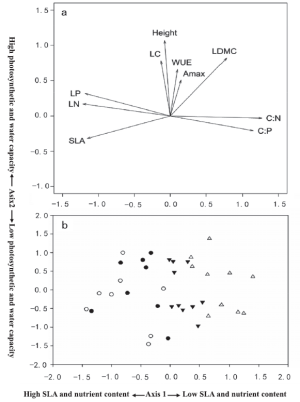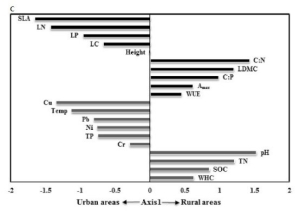Changes in plant functional traits and their relationships with environmental factors along an urban-rural gradient
Rapid urbanization in southern China has had significant impacts on the evergreen broad-leaved forests and caused a series of environmental issues. How plants, in particular plant functional traits, respond to urbanization is hence of importance for their acclimation to changing environments.
Under the guidance of Prof. REN Hai, SONG Guangman, the master student from Research Group for Vegetation and Landscape Ecology in South China Botanical Garden of Chinese Academy of Sciences, investigated the changes of plant functional traits associated with plant competition and nutrient utilization strategies and their relationships with environmental factors in the evergreen broad-leaved forests along an urban-rural gradient in Guangzhou, China.
The results showed that the plant functional traits and ecological adaptation of the dominant tree species of the evergreen broad-leaved forests in southern China varied along the urban-rural gradient. Urban plant species had larger specific leaf area, higher leaf nitrogen content, but lower leaf carbon/nitrogen ratio, and those changes can partly explain the variation in the distribution of species along the urban-rural gradient. Urbanization increased soil acidity and copper content, decreases relative soil nitrogen content, which favours acquisitive-strategy of plant species and thus change the species composition of evergreen broad-leaved forest.
The relevant research has recently been published in the international academic journal Ecological Indicators (https://doi.org/10.1016/j.ecolind.2019.105558).


Figure. The changes of plant functional traits (a, b) and their relationship with environmental factors (c) along an urban-rural gradient
File Download: